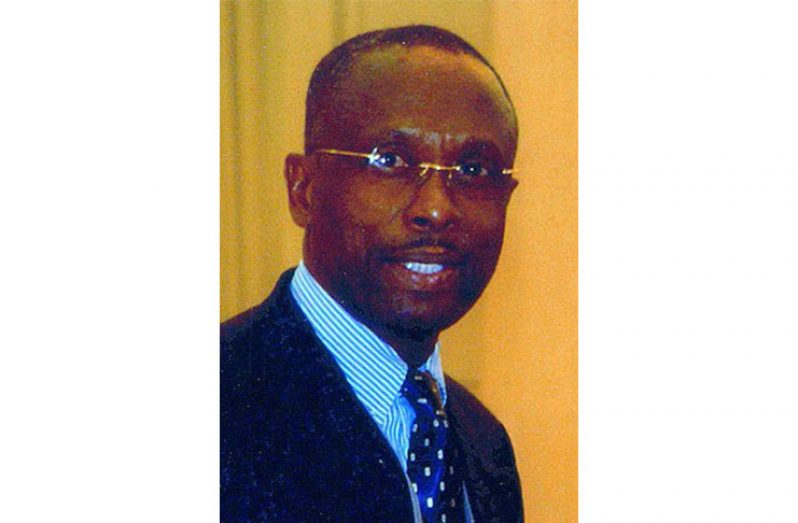– says former education minister
FORMER Education Minister, Dr. Henry Jeffrey, said he is not in support of the suggestion to scrap the country’s primary school exit examination, known as the National Grade Six Assessment (NGSA), unless there is a better replacement.
Recently, Director of Economics at the Caribbean Development Bank (CDB), Dr. Justin Ram, suggested that Guyana should abolish the NGSA since it places young children under much pressure to excel academically.
According to Dr. Jeffrey, this suggestion is one the Education Ministry has considered for at least the past few decades. He, however, made known that there are certain prerequisites needed, that have not been realised, which have long prevented this from happening.
“Essentially, you have to bring up all school to scratch and then eliminate the Grade Six, period,” Dr. Jeffrey said.
In Guyana, the NGSA is written while pupils are in Grade Six, which is the final grade of primary school. After engaging in this assessment, the pupils are graded and assigned to schools based on their performances.
When ranked, the top performing pupils would gain positions in “Senior Secondary Schools”, which are Queen’s College, the Bishops’ High, St. Stanislaus College, St. Roses’ High, St. Joseph’s High and President’s College. Pupils who did not score enough to get into these schools would attend junior secondary schools, which may be close to where they reside.
The former minister explained that in bringing all schools up to scratch, it would mean that the quality of education delivered is the same, with an equitable distribution of resources. When this is done, he noted that pupils could be placed in schools located close to where they reside.
Commenting further, he shared his hope that bringing all schools up to this standard is the agenda of the policymakers in the education system.
“You see how people in the rural areas are gaining enough marks to get QC and those schools? All of that is in an effort to raise those schools up to scratch,” the former minister said, adding: “Maybe when you get more money when you get oil then maybe you can do it faster.”
This year, indeed, pupils from each of the regions with rural populations were able to secure spots at senior secondary schools.
“I am not saying abolish it, but what would you put in place if you abolish it?” Dr. Jeffrey said, and stressed: “There is nothing to put in place until you raise all schools to that acceptable standard.”
Dr. Jeffrey’s statements were in line with those made by Education Minister, Dr. Nicolette Henry. The current education minister welcomed the suggestion from Dr. Ram, but made known that before such a decision is made, there are several steps to be taken.
RIGHT FOR NOW
Like Dr. Jeffrey and Dr. Henry, headmaster of the Anna Regina Multilateral School (ARMS), Lalljeet Ruplall, shared his belief that the NGSA is the “right thing” for Guyana right now.

ARMS is seen as the ‘top school’ on the Essequibo Coast and many of the pupils who write the NGSA would usually aspire to attend this school. However, the headmaster who also worked at the Johanna Cecilia Secondary School previously shared his belief that there was little to no stigma for children who went to that school instead of ARMS.
In fact, he said, “[At Johanna Cecilia], we got students with very low marks who were able to complete university and get their degrees.”
However, Ruplall contended that scrapping the NGSA could be an avenue pursued in the future. He suggested that a feasibility study could be done over a number of years and then a decision would be taken thereafter.
Weighing-in on the matter, trained graduate mistress and teacher at the Bartica Secondary School, Rosalie Perreira, felt that abolishing the NGSA was a “good idea”.
She explained that Bartica pupils who do well are placed at the Three-Mile Secondary School and those who do not are posted to Bartica Secondary.
At Bartica Secondary, the students learn Technical, Vocational Education and Training (TVET) instead of the traditional secondary education curriculum.
TVET is taught at Bartica Secondary because it enables students to have an employable skill when they leave secondary school.
“As an educator, I know that the focus is mainly on the cognitive domain which is basically reading, writing and in-class testing,” she said, noting that “Students should be given the opportunity to develop their talents and their other abilities that they can tap into.”
Perreira continued: “In Guyana, I think we need to develop more industries and if we’re going to be developing those then we need to start having it included in the education system — not only in the secondary level – but in the primary curriculum as well.
STIGMA
She also highlighted that there is some amount of stigma attached to Bartica Secondary and teachers work with the students there to keep them motivated.
In fact, she noted that some of the school’s top performers are transferred to Three-Mile where they sit the Caribbean Secondary Education Certificate (CSEC) examinations.
Instead of the NGSA, she suggested that some other form of assessment be crafted so that different talents and abilities could be assessed.
“The idea is that you take it away, but you still need to know that at the end of instruction period, you have some way of assessing children so that you know that they have been progressing,” she said.
Education Minister, Dr. Nicolette Henry, has welcomed the suggestion from Dr. Ram, but noted that before such a decision is made, several steps have to be taken.
“It would be ideal to have that (abolishing the NGSA), but we are not at a stage where things are ideal here. Looking forward, in terms of long-term, I can see so many changes taking place and who knows what we would eventually morph into in terms of when the education system is able to make even more tangible improvements,” Minister Henry told this newspaper.



.jpg)








